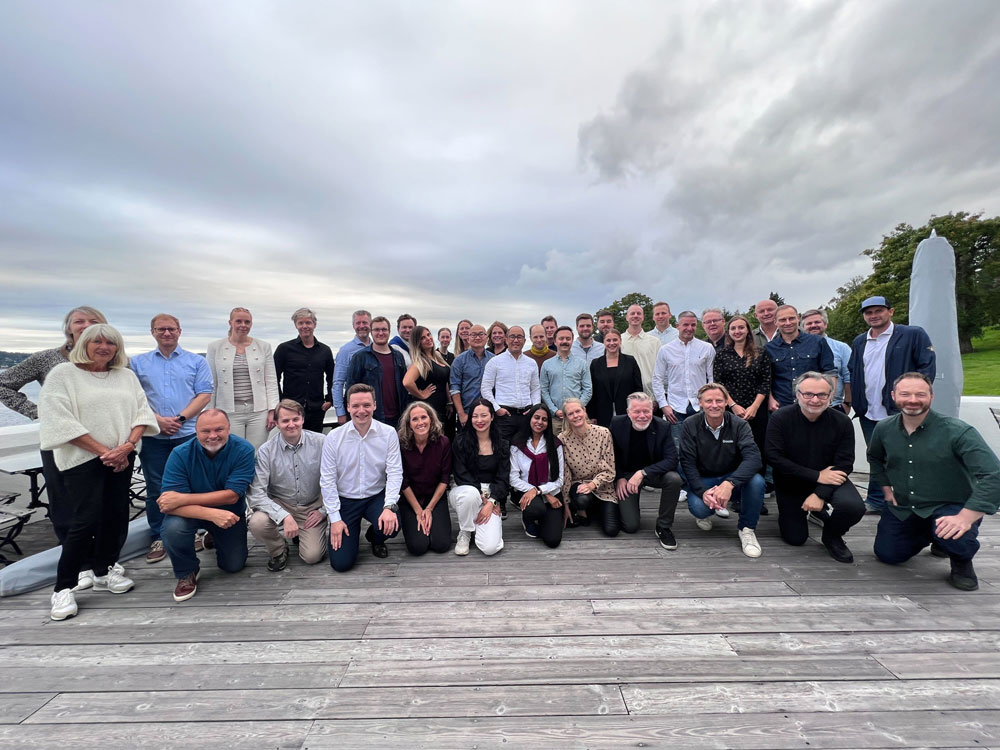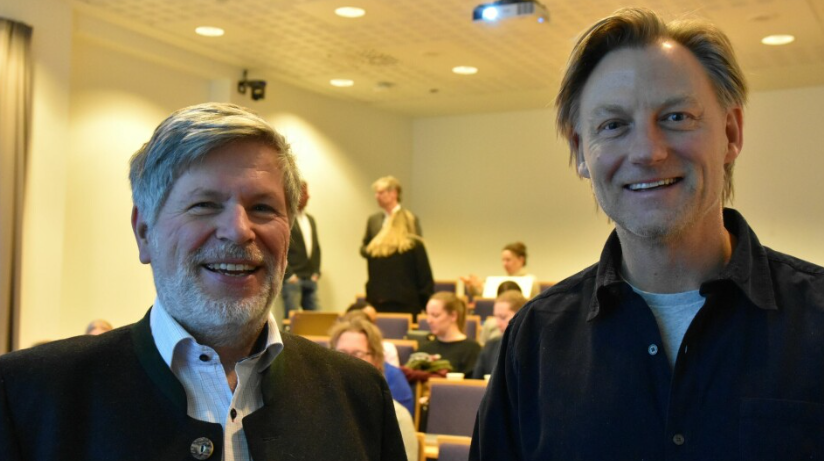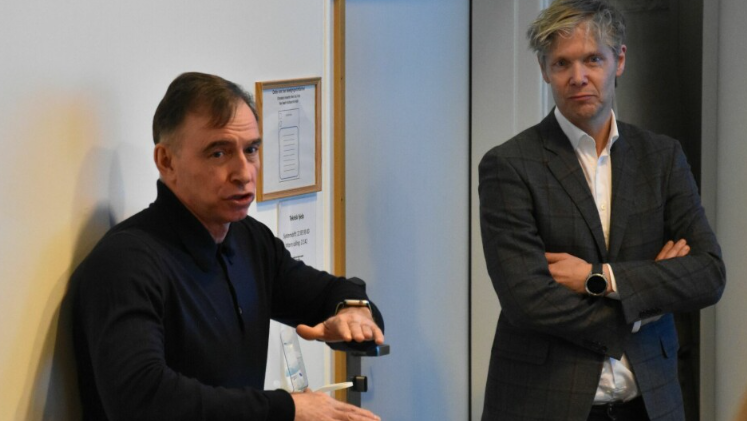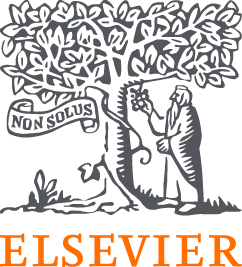-
Authored By:

Dossier to Drive Innovation and Advance Healthcare Competency Management

OSLO & SAN FRANCISCO, December 19, 2024 – Dossier Solutions, a leading healthcare competency management SaaS provider, is pleased to announce its majority acquisition by MTIP, the leading European healthcare software growth equity and buyout investor. MTIP completed the majority buyout in partnership with Peakstone Growth Partners (“Peakstone”), a London-based specialist investor in growth-stage B2B software and technology companies. The acquisition aims to accelerate U.S. market growth, expand geographic reach, and further enhance Dossier’s technology platform. This marks MTIP Fund II’s 10th platform investment, aligning with MTIP’s strategy of investing in high-growth, profitable European healthcare software companies. Dossier represents Peakstone’s second platform investment and reflects the firm’s focus on partnering with rapidly growing, founder-led software companies across Europe and North America.
Transforming Competency Management in Healthcare
Since 2000, Dossier has been revolutionizing healthcare systems by simplifying and optimizing competency management. Its platform replaces outdated methods like spreadsheets and paper systems with efficient digital tools, enabling healthcare managers to focus on patient care rather than administrative tasks. By ensuring healthcare professionals maintain the skills needed to provide top-tier care, Dossier promotes safety, efficiency, and excellence across organizations.
“Having MTIP join as a majority investor in partnership with Peakstone marks an exciting new chapter for Dossier,” said Geir Arnhoff, founder and CEO of Dossier. “MTIP’s expertise in healthcare technology and commitment to impactful investments make it an ideal partner as we expand globally and innovate further to meet the needs of our clients. Peakstone’s track record of working with founders and scaling B2B software businesses will help us achieve our growth ambitions.”
Dossier’s healthcare competency platform helps organizations reduce medical errors, maintain regulatory compliance, and enhance patient outcomes. The impact of its platform will continue to be measured using MTIP’s Impact Tracker, ensuring the delivery of equitable and effective healthcare solutions.
Opportunities for Growth and Expansion
Dossier is a trusted partner for all four healthcare regions in Norway, as well as numerous municipalities. Since entering the U.S. market in 2020, Dossier is currently working with more than 400 U.S. hospitals, including major clients such as Mount Sinai, Tenet Health, Piedmont Health, and UCLA Health.
Looking ahead, Dossier plans to expand into new markets, including Germany and Singapore, where it has already begun building strong client relationships. With more than two decades of industry expertise and a dedicated leadership team, Dossier is well-positioned to lead the global adoption of digital competency management.
Support From MTIP and Peakstone Growth Partners
“We are thrilled to partner with Dossier at this pivotal stage,” said Katrin Vatiska, investment partner at MTIP. “Dossier’s platform meets the growing demand for innovative healthcare software that drives operational efficiency. We look forward to supporting its growth journey.”
“Dossier’s proven leadership, impressive client base, and strong growth trajectory make it an outstanding company,” said Florian Hofmann, founder and managing partner at Peakstone. “We’re excited to help drive Dossier’s mission to deliver compliance and efficiency for healthcare.”
About Dossier
Dossier is a real-time platform that transforms how healthcare organizations create, manage, and report on competencies. Trusted by more than 500,000 users globally, it streamlines operations, ensures compliance, and improves patient safety and outcomes, as well as hospital operational efficiency. To learn more, visit dossier.com.
About MTIP
MTIP is a leading Swiss-based growth equity and buyout firm specializing in investments in European healthcare software companies. Our strategy focuses on partnering with high-growth, profitable businesses and visionary management teams. Leveraging our deep sector expertise, we help scale successful healthcare software companies achieve their full potential. At MTIP, our purpose is clear: Unlocking value, improving lives. Together with our portfolio companies, we create sustainable growth, advance innovation, and deliver long-term value that reshapes the global healthcare landscape. For more information, visit mtip.ch.
About Peakstone Growth Partners
Peakstone Growth Partners (Peakstone) is a specialist investor in growth stage B2B software and technology companies in Europe and North America that partners with founder-owned businesses, often as first institutional investors. Through its capital and expertise, Peakstone helps to build operations that scale and achieve ambitious growth targets. As operationally focused growth investors, Peakstone partners with ambitious management teams to scale and optimize their go-to-market, implement scalable operating systems and processes, and pursue value-accretive acquisitions. By providing capital, hands-on scale-up support and sector expertise, and a vast network of relationships, Peakstone helps to transform innovative and fast-growing businesses into lasting, category-defining market leaders. The firm is headquartered in London, United Kingdom. For more information, please visit peakstonepartners.com.
-
Authored By:

[SAN FRANCISCO, May 8, 2024] – Dossier Inc., a healthcare competency platform supporting care team training and education around the world, has achieved SOC 2 Type II compliance in accordance with American Institute of Certified Public Accountants (AICPA) standards for SOC for Service Organizations, also known as SSAE 18. Achieving this standard with an unqualified opinion serves as third-party industry validation that Dossier provides enterprise-level security for customers’ data secured in the Dossier system.
More than 50 health systems in the U.S. are currently using the Dossier platform to track staff competencies and maintain compliance. Dossier is also widely adopted in Europe and Singapore.
“Achieving SOC 2 Type II certification is a big milestone for Dossier. It is a testament to our unwavering commitment to safeguarding our clients’ data with the highest security standards,” said Alexander Gunkel, Dossier’s Chief Information Security Officer.
Dossier was audited by Prescient Assurance, a leader in security and compliance attestation for B2B SAAS companies worldwide. Prescient Assurance is a registered public accounting in the U.S. and Canada and provides risk management and assurance services, which includes but is not limited to, SOC 2, PCI, ISO, NIST, GDPR, CCPA, HIPAA, and CSA STAR.
“The SOC2 certification ensures our clients can trust us with their most sensitive information, knowing it is protected by robust, industry-validated security practices,” said Geir Arnhoff, Chief Executive Officer, Dossier. “Alexander Gunkel’s leadership was instrumental in fostering teamwork and engagement across the global Dossier organization, ensuring a smooth and efficient journey to this milestone.”
An unqualified opinion on a SOC 2 Type II audit report demonstrates to Dossier current and future customers that they manage their data with the highest standard of security and compliance.


-
Authored By:

Germany, like Norway, faces challenges in terms of personnel shortages, a baby boom generation heading into retirement at full speed and rising costs in the healthcare system. German health leaders visited Norway to learn.
There is always something to learn when you visit other hospitals and health institutions. We in Germany face the same challenges within the healthcare system as Norway does in terms of personnel shortages, an increasing proportion of the population getting older and higher costs. I think it is completely the same in both Norway and Germany, says Lorenz Trümper, managing director of the University Hospital in Göttingen to Dagens Medisin during his visit to Rikshospitalet and Oslo University Hospital.

IMPRESSED: Lorenz Trümper (left), managing director of the University Hospital in Göttingen, and Geir Arnhoff, managing director of Dossier Solutions, were impressed with how Oslo University Hospital has introduced the Competence Portal. Michael Chr. A. Simonsen Lorenz Trümper and parts of the management at the University Hospital in Göttingen and the University Clinic in Bonn in Germany visited Norway and Oslo University Hospital.
The German hospital director says the challenges are about being able to recruit, retain and have properly qualified personnel. The German health leaders were visiting Norway to learn about different strategies to meet these challenges, and in particular to learn about the Norwegian Competence Portal, which the Norwegian company Dossier Solutions supplies.
Mapping competencies
Dossier helps hospitals to have an overview of what the staff can and are trained in, so that the hospital knows that they meet quality requirements and maintain patient safety. The Competence Portal software gathers the employees’ expertise and contributes to a “competency overview” for both the individual employee, managers and healthcare organizations.
The health sector is dependent on large numbers of new employees and students to maintain the treatment offer. Dossier helps with structured training to get new employees into the job as quickly as possible. Much of this training work is paper-based today, we give the health sector the tools to do this digitally, says Geir Arnhoff, managing director of Dossier Solutions.
All health organizations in Norway and a large part of the municipal health service use Dossier today. In addition, the company supplies the solution to more than 300 hospitals in the US, a market they entered in 2019.
Norway is ahead of the game
Arnhoff explains that, as has traditionally been the case through training, having checklists of courses and procedures and entering them manually in Excel and other makeshift solutions is both time-consuming and often difficult to find again once the file has been archived.
It takes a lot of time and it is difficult to know for sure whether employees have received training in the correct procedures and material. The hospitals end up with good quality in the end, but they spend a lot of time on it. This solution saves time and helps to make quality measurements easier.
In Germany, there will be a new law in March that requires quality data to be published and made public.
Norway is well advanced when it comes to digitization and standardization in the healthcare system. Germany faces many of the same challenges we have found solutions for in Norway and is now coming to Norway to learn from our experiences.
Hospital director Trümper believes such a system is of great value.
That is why we come here to learn from those who have already put this to use. Now we want to see if this is possible to achieve with us.
The innovation project that is ongoing between Dossier and the two German hospitals has a total budget of over five million kroner. Now the company is working with Innovation Norway to find good ways to scale in the German market, and to achieve the same standardization as has been achieved in Norway in Germany.
Relevant with a view to retaining employees
At Rikshospitalet, the German delegation was given a review and demonstration of how the Competence Portal works at Oslo University Hospital by advisers Nikolai Mørck and Malin Vik Malnes. Oslo University Hospital was among the first to try out the Competence Portal.
They are two of five who have worked in the project team for the introduction of the Competence Portal. The project has now ended and operations are now over at the Department for competence development in the clinic.
Dossier manager Arnhoff says he is very impressed by the introduction of Oslo University Hospital. He highlights in particular how the two advisers have made themselves available for questions as an important success criterion.
The team that has worked with the Competence Portal here has made an enormOslo University Hospital effort, and has been responsible for what is probably the most effective and focused implementation of our system in a hospital. That is impressive! The implementation has been well organized, says Arnhoff.
Head of department Knut Arne Pedersen, HR staff, Oslo University Hospital was also present at the session and the presentation for the German health managers. Pedersen was also part of the project team for the introduction. Pedersen stated at the session that the tool is also relevant in terms of preventing healthcare personnel from leaving their jobs.

EXPERIENCES: Knut Arne Pedersen (left), department head HR staff, Oslo University Hospital, welcomed the German delegation and told, together with the project team, how the hospital has worked with the Competence Portal. Michael Chr. A. Simonsen When someone quits their job at Oslo University Hospital, they answer a survey about why. Many respond that there is too little room for further education and competence building in their role. In this way, this becomes a relevant tool for not only mapping competence, but also for planning good and relevant competence development for each individual employee, Pedersen stated at the session.
We don’t have “state of the art” tools, we were able to demonstrate that here today
Helle Dokken is Norwegian and director of nursing at the University Hospital in Göttingen. She says their goal is to map out which skills, in addition to nursing education, their employees need to do the best possible job with the patients.
We are not good enough there today. We have a cumbersome system and use a lot of excel tables and other not “state of the art” tools. We have gained an insight into the “state of the art” here. We would like to put such a system in place to be able to move forward in this area, says Dokken.

POSITIVE FOR CHANGE: Helle Dokken is Norwegian and director of nursing at the University Hospital in Göttingen. Michael Chr. A. Simonsen She says that in order to manage to systematize the information, to know who knows what and who needs more training or education, there is a need for such a tool as Oslo University Hospital and other health organizations in Norway use today.
Dokken gives an example that if a nurse with them wants to change departments and work elsewhere, then the system that Dossier offers will make it possible to “take” the expertise to the new department.
You don’t do that today. Then you have to start a new competence mapping. This is also very useful in terms of students for the university hospitals, where you can document and take your skills with you.
Dokken sees the system as a good tool for managers in terms of knowing what skills they need and what they have.
And what do we have expertise in that we don’t need? It is very clarifying for all managers, but also for the nurses, who then get to know what it is they need from courses and knowledge. And the fact that you can take this with you to new workplaces saves time.
She believes that such a portal and overview will help both managers and employees save time on these things.
And not least, it’s nice to know and get an overview that you’ve done what you’re supposed to, both for the individual employees and managers.
Welcomes the restructuring of the German health service
In Germany, there is now a debate about restructuring the health service due to the challenges of personnel shortages, more elderly people and financial challenges.
The government wants more transparency about quality and new “levels” of hospitals. A total supplier of health services and regional health centers that will provide for the population’s basic health service needs.
In Göttingen, such a health center will now be established, one of the first of its kind. Hospital director Trümper believes it is a good change.
This is a major upheaval of the health service. I think it’s a good change in terms of the future, but there are big political discussions and a lot of opposition. One of the consequences of this change is that one in three hospitals will disappear. There is no economy to run everyone like today.
He refers to how the health crowns are used now compared to before, which he believes plays a big role.
Adopt new treatment methods. The costs of new methods have exploded and take a much larger part of the money pot. The total health budget has not shrunk, but it is spent differently on, for example, new methods.
Trümper believes that the financing of pharmaceuticals will perhaps change in Germany, and that the challenges in health are probably one of the biggest political headaches in Germany right now.
The hospital director says the closure of a third of the country’s hospitals has met with a lot of opposition from residents and politicians at local level. He is more uncertain about whether it will be carried out.
I see it as a necessity because of quality and personnel.
50/50 if it goes through
He refers to the challenges that both Germany and Norway face, fewer people of working age and a larger baby boomer generation that is at full speed into retirement.
Therefore, we need a restructuring of the service. I don’t think we will get more people to work in the health care system.
If you had asked me a year ago whether the government would succeed in this, I would have said yes. Now it’s more 50-50. There is a lot of opposition, especially from the wealthier parts of the country. But I don’t think a restructuring will go beyond patient care.
-
Authored By:

Enhancing Healthcare Workforce Competency: A Strategic Partnership Between Amplifire and Dossier
Amplifire, the leading adaptive eLearning and content development platform and sponsor of the Healthcare Alliance, is pleased to announce a strategic partnership with Dossier, a pioneer in competency management solutions, to revolutionize workforce competency training in the healthcare sector. This collaboration aims to address the unique challenges faced by healthcare institutions by combining Amplifire’s one-of-a-kind, proven adaptive learning algorithm and the Dossier platform.
The collaboration with Dossier brings a critical component to Amplifire’s Workforce Competency offering, strategically designed to meet the healthcare sector’s pronounced workforce challenges, emphasizing the need for competency and skills-based training.
Amplifire’s world-class, Healthcare Alliance courses, and new AI-driven content development capabilities are transforming the way healthcare learns and trains.
Dossier enables 100% visibility and end-to-end management, helping Amplifire prioritize speed, efficiency, and thorough tracking to create a powerful workforce competency solution tailored to modern learning environments’ dynamic needs.
This collaboration’s key features include automated and comprehensive tracking of knowledge, and abilities, flexible reporting capabilities, web-based access for seamless integration, and brain science-based adaptive learning.
“We are excited to partner with Amplifire, a company renowned for its innovative approach to knowledge enhancement,” said Geir Arnhoff, Founder and CEO of Dossier. “This partnership is a significant step toward our commitment to enhancing healthcare training. By integrating Amplifire’s AI-driven content on our platform, we aim to elevate the standard of training and patient care in hospitals.”
“Partnering with Dossier is a strategic move for Amplifire,” emphasized Bob Burgin, CEO of Amplifire. “Our AI-driven content, focused on improving knowledge and decision-making in healthcare, finds a perfect synergy with Dossier’s platform. Together, we’re not just providing information,we’re creating a powerful tool that can lead to tangible improvements in patient safety and hospital outcomes.”
Based on current use cases, the partnership is already yielding results for accreditation requirement fulfillment, administrative burden reduction, deep insights into learner knowledge, misunderstandings, and struggles, as well as empowerment and guidance for career advancement.
This collaboration is part of a broader initiative by Amplifire to invest in innovative and effective workforce development solutions. By combining forces with Dossier, Amplifire aims to play a pivotal role in shaping the future of healthcare workforce training and patient safety.
About Amplifire
Amplifire is a next-generation learning platform with more than four billion interactions and is an innovator in high-stakes training for critical roles. The Amplifire platform harnesses advances in cognitive science to create personalized learning and drive successful outcomes. The platform’s adaptive
algorithm guides millions of learners to mastery across healthcare, government, and other segments, providing unique analytics that offer valuable learner insights.
About Dossier
Dossier leads the way in competency management, offering a platform that helps healthcare institutions create, manage, monitor, and improve staff competencies efficiently. Dossier’s commitment to leveraging technology for better healthcare outcomes has positioned the organization as a preferred partner for healthcare institutions globally.
-
Authored By:

Elsevier and Dossier advancing care team skills and knowledge
Elsevier, a global leader in healthcare and scientific publishing, and Dossier, an innovative digital competency management provider, are excited to announce a strategic partnership to transform healthcare education and competency management. This collaboration combines Elsevier’s authoritative healthcare content with Dossier’s cutting-edge technology platform, offering an unparalleled solution to healthcare institutions worldwide.
The partnership marks a significant step toward advancing healthcare education and competency management standards. By integrating Elsevier’s comprehensive, evidence-based content into Dossier’s agile competency management system, this collaboration enhances the efficiency and effectiveness of healthcare professionals’ education and training, which provides reassurance to healthcare executives that care team members have the skills, judgment, knowledge, and behaviors for the tasks they perform. “Dossier shares our commitment to excellence in healthcare education,” said Jukka Välimäki, SVP Global Commercial at Elsevier. ”This partnership is a testament to Elsevier’s ongoing efforts and commitment to empowering healthcare professionals with trusted, evidence-based content. By combining our strengths with Dossier, we set a new benchmark in healthcare competency and continuing education.”
“Joining forces with Elsevier represents a significant milestone for Dossier,” said Geir Arnhoff, founder and CEO. ”Our shared vision of harnessing technology to enhance healthcare education will drive innovation and improve outcomes.
“This partnership broadens our reach and deepens our impact,” Arnhoff continued. “Together, we empower healthcare institutions by providing a comprehensive, digital tool to manage and track competency development.”
Benefits for Healthcare Institutions
The integrated solution offered by Elsevier and Dossier is set up to streamline clinical competency development based on the highest quality of content, reduce administrative burdens for educators, and provide real-time insights into the skill development of healthcare professionals. This partnership greatly benefits nursing directors, CNOs, and clinical educators, offering them an efficient digital tool to manage and easily ensure staff competencies and regulatory compliance.
About Elsevier
As a global leader in information and analytics, Elsevier helps researchers and healthcare professionals advance science and improve health outcomes for the benefit of society. We do this by facilitating insights and critical decision-making for customers across the global research and health ecosystems. In everything we publish, we uphold the highest standards of quality and integrity. We bring that same rigor to our information analytics solutions for researchers, academic leaders, funders, R&D-intensive corporations, doctors, and nurses.
About Dossier
Dossier is at the forefront of competency management technology. Dossier’s innovative platform helps healthcare institutions improve operational efficiencies, ensure compliance, and enhance staff productivity through effective and efficient competency management. dossier.com
-
- January 12, 2023
Dossier + ASHP Launch Only Pharmacy Technician Training Program
PharmTech Ready helps prepare technician workforce, top priority for pharmacy leaders nationwide
Palo Alto, California, January 12, 2023 – To prepare those interested in a pharmacy career, Dossier, a digital competency platform, and the American Society of Health-System Pharmacists (ASHP) collaborated and have launched PharmTech ReadySM, a pharmacy technician training program.

PharmTech Ready, provides learners with:
- More than 160 hours of entry- and advanced-level content
- More than 70 topics
- Didactic learning requirements and supplemental materials to support all aspects of a technician training program
- Access to exclusive ASHP continuing education, tools, and resources
- Alignment with PTAC accreditation requirements and the ASHP/ACPE Model Curriculum for a Technician Training Program
“PharmTech Ready offers learners access to ASHP’s unparalleled educational content on Dossier’s cutting-edge platform,” said Daniel J. Cobaugh, PharmD, FAACT, DABAT, vice president of publishing at ASHP and editor-in-chief of AJHP. “ASHP is pleased to have launched this comprehensive training solution as part of our longstanding commitment to the recruitment, training, advancement, and retention of pharmacy technicians as we support their essential roles on the healthcare team.”
PharmTech Ready uses the Dossier platform, providing users with a great learning experience and easy, dashboard reporting.
“We’ve been collaborating with ASHP on several initiatives now, and we’re thrilled to be able to develop a resource that meets a critical need in the pharmacy space,” said Roger Lee, COO – U.S., Dossier.
ASHP has 80 years of experience developing and implementing world-class education, content, and practice resources for the pharmacy workforce. This unique position enabled their staff and member to collaborate, marrying excellence in content development capabilities with real-world practice perspectives. For more information about PharmTech Ready, visit ashp.org/pharmtech-ready.
About Dossier
Dossier offers a healthcare competency management platform that provides full visibility and real-time reporting by individual, department, facility, or enterprise. With Dossier, competency plans can be created, updated, and assigned within clicks – giving your team more time, for themselves, for training, and for patients. Healthcare organizations embarking on digital transformations rely on Dossier’s platform to help maximize their return on investment (ROI) from their learning assets because it provides visibility into course completion.
About ASHP
ASHP is the collective voice of pharmacists who serve as patient care providers in hospitals, health systems, ambulatory clinics, and other healthcare settings spanning the full spectrum of medication use. The organization’s more than 60,000 members include pharmacists, student pharmacists, and pharmacy technicians. For 80 years, ASHP has been at the forefront of efforts to improve medication use and enhance patient safety.
-
- January 12, 2023
Competency: Is it the Wonder ‘Drug’?
Management Matters
Palo Alto, California, January 12, 2023 – Geir Arnhoff, CEO and co-founder of Dossier, Bari Berger and Iris Meyenburg-Altwarg, managing director at Com-P-Tense Germany GmbH, address the value of competency in modern healthcare. The two-part article explores the link between healthcare professionals’ burnout, morale, and competence level. It considers competence level as the key to improving the quality of care and decreasing staff turnover.

Join our email list to stay current about healthcare competency trends, insights, and information

